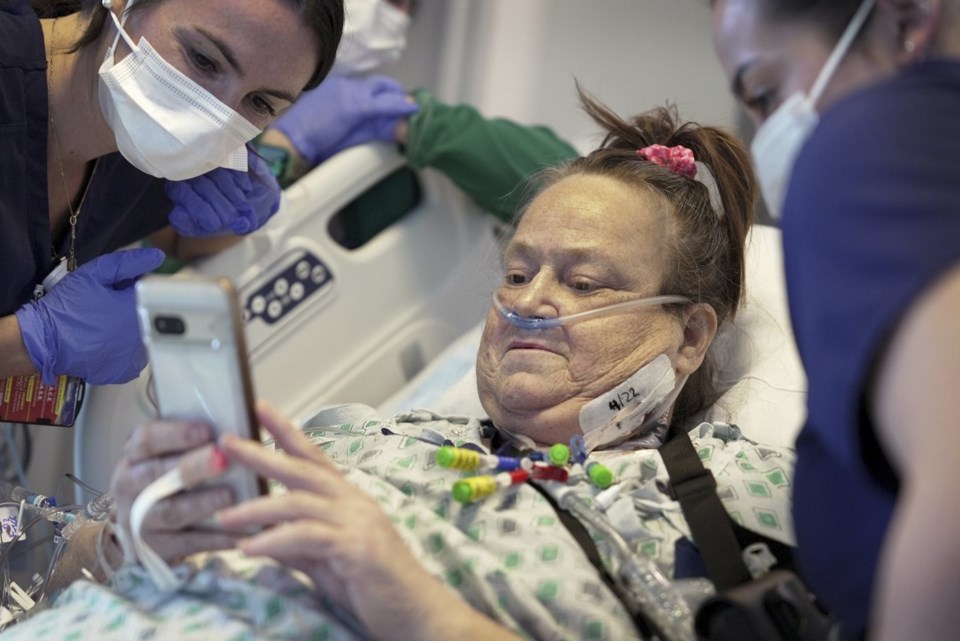WASHINGTON (AP) ŌĆö A woman who received a is back on dialysis because surgeons had to remove the gradually failing organ after just 47 days.
Lisa Pisano was the second person to receive a kidney from a gene-edited pig, and NYU Langone Health announced that she is stable after an operation to remove the organ earlier this week.
The first patient to receive a pig kidney transplant, at Massachusetts General Hospital, died in early May, nearly two months after his transplant. Doctors there said there was no indication he died as a result of the experimental transplant.
PisanoŌĆÖs heart and kidneys were failing when, in a dramatic pair of surgeries in April, doctors implanted a mechanical pump to keep her heart beating and then the pig kidney.
At first she seemed to be recovering well. But Dr. Robert Montgomery, who led the transplant, said there were ŌĆ£unique challengesŌĆØ to managing both the heart pump and new kidney. Her blood pressure dropped too low multiple times for optimal blood flow to the kidney.
The kidney lost function until doctors no longer could justify keeping her on immune-suppressing medications, Montgomery said in a statement Friday.
A recent kidney biopsy showed no signs of rejection ŌĆō the biggest concern in highly experimental animal-to-human transplants ŌĆō but there was ŌĆ£significant injuryŌĆØ from insufficient blood flow, he said. NYU will further study the explanted kidney for further insight on how it reacted inside a living person.
Montgomery noted Pisano wasn't a candidate for the life-prolonging heart pump while on dialysis, and her heart disease in turn barred a traditional kidney transplant.
ŌĆ£We are hoping to get Lisa back home to her family soon,ŌĆØ he said. ŌĆ£Her strength and bravery in the face of adversity inspires and drives us as we continue pursuing the hope and promise of xenotransplantation.ŌĆØ
Pisano told the Associated Press in April that she knew the pig kidney might not work but ŌĆ£I just took a chance. And you know, worst case scenario, if it didnŌĆÖt work for me, it might have worked for someone else.ŌĆØ
More than 100,000 people are on the U.S. transplant waiting list, most who need a kidney, and thousands die waiting. In hopes of filling the shortage of donated organs, several biotech companies are genetically modifying pigs so their organs are more humanlike, less likely to be destroyed by peopleŌĆÖs immune system.
Formal studies of such organs are expected to begin next year. Meanwhile, NYU and other research teams have temporarily transplanted pig kidneys and hearts . In addition to the Mass General pig kidney transplant, the University of Maryland transplanted pig hearts into two men who were out of other options, and .
___
The Associated Press Health and Science Department receives support from the Howard Hughes Medical InstituteŌĆÖs Science and Educational Media Group. The AP is solely responsible for all content.
Lauran Neergaard, The Associated Press



